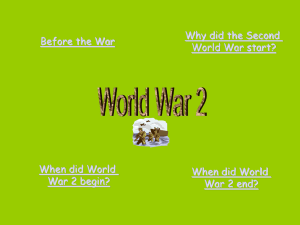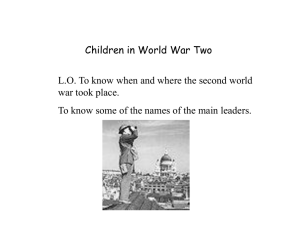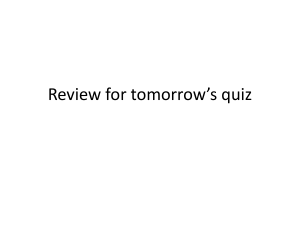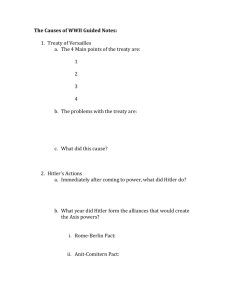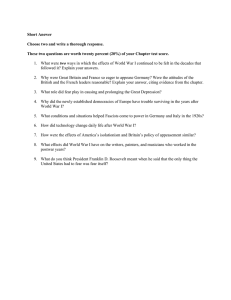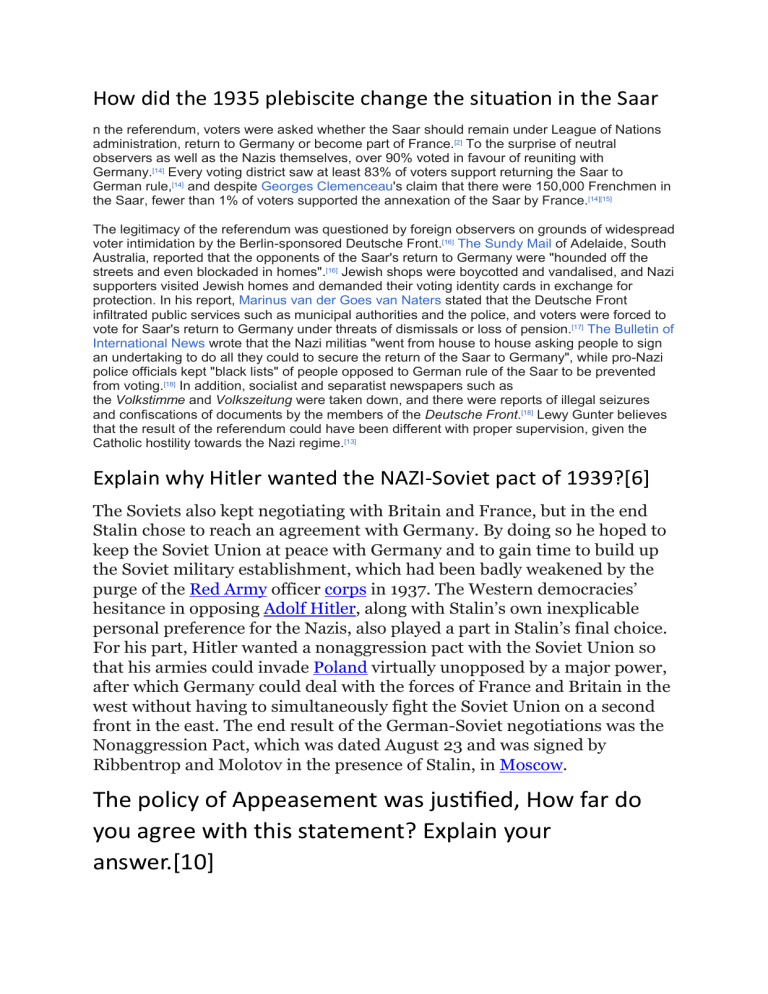
How did the 1935 plebiscite change the situation in the Saar n the referendum, voters were asked whether the Saar should remain under League of Nations administration, return to Germany or become part of France.[2] To the surprise of neutral observers as well as the Nazis themselves, over 90% voted in favour of reuniting with Germany.[14] Every voting district saw at least 83% of voters support returning the Saar to German rule,[14] and despite Georges Clemenceau's claim that there were 150,000 Frenchmen in the Saar, fewer than 1% of voters supported the annexation of the Saar by France.[14][15] The legitimacy of the referendum was questioned by foreign observers on grounds of widespread voter intimidation by the Berlin-sponsored Deutsche Front.[16] The Sundy Mail of Adelaide, South Australia, reported that the opponents of the Saar's return to Germany were "hounded off the streets and even blockaded in homes".[16] Jewish shops were boycotted and vandalised, and Nazi supporters visited Jewish homes and demanded their voting identity cards in exchange for protection. In his report, Marinus van der Goes van Naters stated that the Deutsche Front infiltrated public services such as municipal authorities and the police, and voters were forced to vote for Saar's return to Germany under threats of dismissals or loss of pension.[17] The Bulletin of International News wrote that the Nazi militias "went from house to house asking people to sign an undertaking to do all they could to secure the return of the Saar to Germany", while pro-Nazi police officials kept "black lists" of people opposed to German rule of the Saar to be prevented from voting.[18] In addition, socialist and separatist newspapers such as the Volkstimme and Volkszeitung were taken down, and there were reports of illegal seizures and confiscations of documents by the members of the Deutsche Front.[18] Lewy Gunter believes that the result of the referendum could have been different with proper supervision, given the Catholic hostility towards the Nazi regime.[13] Explain why Hitler wanted the NAZI-Soviet pact of 1939?[6] The Soviets also kept negotiating with Britain and France, but in the end Stalin chose to reach an agreement with Germany. By doing so he hoped to keep the Soviet Union at peace with Germany and to gain time to build up the Soviet military establishment, which had been badly weakened by the purge of the Red Army officer corps in 1937. The Western democracies’ hesitance in opposing Adolf Hitler, along with Stalin’s own inexplicable personal preference for the Nazis, also played a part in Stalin’s final choice. For his part, Hitler wanted a nonaggression pact with the Soviet Union so that his armies could invade Poland virtually unopposed by a major power, after which Germany could deal with the forces of France and Britain in the west without having to simultaneously fight the Soviet Union on a second front in the east. The end result of the German-Soviet negotiations was the Nonaggression Pact, which was dated August 23 and was signed by Ribbentrop and Molotov in the presence of Stalin, in Moscow. The policy of Appeasement was justified, How far do you agree with this statement? Explain your answer.[10] Appeasement was British policy towards Hitler throughout the 1930s. It involved granting Hitler’s demands in the hope that he would eventually become satisfied. There are a number of arguments in favour of such a policy. 1. Britain was afraid of Communism and Hitler was standing up to it, therefore many in Britain supported Hitler’s actions in this way. 2. No one wanted another world war after the devastation of the First World War, therefore, appeasement was a method to avoid a war. 3. Britain could not fight another war, the equipment Britain had was out of date and Britain did not have sufficient numbers to keep up a long war against Germany. 4. Britain could not count on the support of the Empire, Commonwealth or USA against Hitler, therefore a war would likely result in Britain losing. 5. Britain was dealing with economic problems linked to the Great Depression and a war would be a costly distraction therefore appeasement would allow governments to focus on the problems at home. Many Britons felt that the Treaty of Versailles was unfair and that what Hitler was doing was justified. Public opinion tended to support the British Government's’ position
